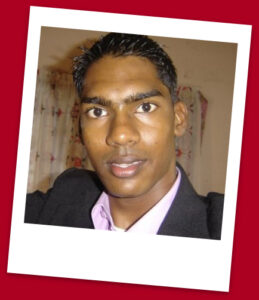“Non communicable diseases should be top of the agenda”
August 27 The Caribbean is relying on heads of government – and journalists – to help prevent and treat non communicable diseases, writes Ryan Bachoo, 22, a Commonwealth Correspondent from Trinidad & Tobago.
The Caribbean is relying on heads of government – and journalists – to help prevent and treat non communicable diseases, writes Ryan Bachoo, 22, a Commonwealth Correspondent from Trinidad & Tobago.
I had the privilege of attending a media workshop in Barbados earlier this month (5-6 August) at which the Pan American Health Organization undertook a dress rehearsal for next month’s United Nations High Level Summit on Non Communicable Diseases.
The diseases in question include heart disease, strokes, cancer, asthma, diabetes, chronic kidney disease, osteoporosis, Alzheimer’s and cataracts.
The aim was to inform and educate Caribbean journalists on these illnesses and figure out why these horrors, which have been destroying mankind for centuries, have not managed to sound the media’s alarm bells.
The conference, supported by the Commonwealth Secretariat, was excellent and served its purpose in all regards. However, as I mentioned above, the workshop offered only a glimpse of what the debate would look like when Caribbean heads of government meet world leaders in a two-day summit on 19 and 20 September in New York.
I can’t help but feel a sense of pessimism heading into the Caribbean initiated talks. Because of the nature of the discussion, many would feel that I should be more positive and optimistic, but in order to get the best possible result out of this summit, we all need to stop, and start thinking realistically.
For starters, let it be remembered that these are world leaders that Caribbean heads are meeting, many of whom do not have heart disease and cancer awareness at the top of their agenda. Secondly, and most importantly, we meet at a time of great economic turmoil, and realistically, the United Nations will not be splashing cash in every direction.
These are facts, which can be countered, but Caribbean heads will need to dig deep and really try to get a commitment from the United Nations.
At certain times, though, you stop and ask yourself, can world leaders agree on anything? In my closing statements in Barbados, I gave reference to the United Nations’ global warming high level meeting two years ago, and I fear that above all, the very same thing will strike down efforts to raise awareness about the seriousness of non communicable diseases in New York.
At the Commonwealth Heads of Government Meeting in Port of Spain in 2009, French President, Nicholas Sarkozy, was invited by Trinidad and Tobago’s then Prime Minister, Patrick Manning, to have minor talks about the threat of global warming. Two weeks later and there was to be a high level meeting in Copenhagen that was to confirm which route the world was going to take in the fight against global warming.
In Port of Spain heads came to some agreement on what should be done. The Port of Spain declaration became very important and two weeks later, in Copenhagen, where there was supposed to be a grand outcome. But absolutely nothing came of it. World leaders couldn’t agree on a way forward on how to cut gas emissions.
The same could very easily happen in New York. We all travel to the Concrete Jungle, sit and talk for 48 hours and at the end of it, when the time to vote comes, we’re all deadlocked at 50-50.
An important point I did conclude in my closing statements was nonetheless the importance of the media workshop itself. Should the UN High Level Meeting in New York fail, then the only people who can carry out the message of awareness of non communicable diseases are journalists, much like the importance of the global warming.
The build-up to the UN’s High Level Meeting for NCD’s next month is nowhere close to the advertisements of Copenhagen two years ago, but for centuries these diseases have killed millions of the world’s population with barely anyone noticing.
Perhaps Plato was right, “Attention to health is life’s greatest hindrance.”
…………………………………………………………………………………………………………………
Ryan’s profile:
“Hi, I am Ryan Bachoo, a journalist and public relations officer from Princes Town in Trinidad and Tobago. I currently work with the West Indies Cricket Board.
“I am currently working as a broadcast journalist for Cable News Channel 3. I also write on various talking points and current problems facing the world including international politics and the issues of a depleting economy.”
Read another of Ryan’s articles here: “Browsing through news websites the other day, trying to understand every angle of the Egypt crisis, I noticed a comment on CBC News, which described the events in Egypt as “a social earthquake on the scale of Haiti..”
…………………………………………………………………………………………………………………
Opinions expressed in this article are those of the author and do not necessarily represent the views of the Commonwealth Youth Programme. Articles are published in a spirit of dialogue, respect and understanding. If you disagree, why not submit a response?
To learn more about becoming a Commonwealth Correspondent please visit: http://www.yourcommonwealth.org/submit-articles/commonwealthcorrespondents/



